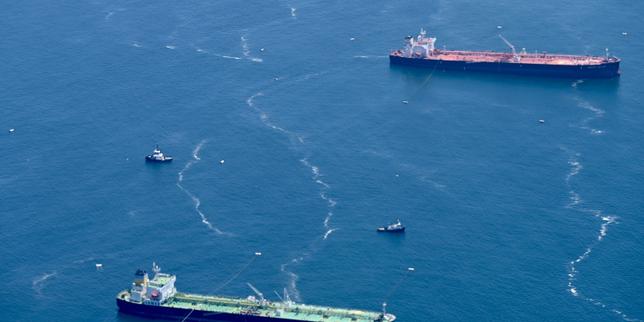International Maritime Emissions Agreement Delayed by One Year Due to US Opposition
The International Maritime Organization postponed a key global shipping emissions reduction plan by a year, mainly due to US opposition and pressure from allied oil-producing nations.
- • The IMO delayed a global shipping emissions reduction plan by one year due to US and allied pressure.
- • The plan targeted full decarbonization of the maritime sector by 2050 with measures starting in 2028.
- • A carbon pricing mechanism was central to the plan, aiming to fund incentives for low-emission ships and vulnerable countries.
- • The postponement vote was 57 in favor and 49 against, with France opposing the delay.
Key details
On October 17, 2025, the International Maritime Organization (IMO) postponed the adoption of a global plan aimed at reducing greenhouse gas emissions from ships by one year. This delay resulted from intense pressure and opposition primarily from the United States and some oil-producing nations, including Saudi Arabia. The shipping sector, responsible for approximately 3% of global CO2 emissions, was set to implement this initiative to progressively reduce emissions starting in 2028, with the ambitious goal of total decarbonization by 2050.
The plan, which had received majority approval in principle in April 2025, included a carbon pricing mechanism aimed at incentivizing low-emission ships and supporting vulnerable countries economically. However, the US threatened sanctions such as visa restrictions and extra port charges against countries backing the plan. In the final vote, 57 states favored postponing the agreement, while 49—including France and numerous EU members—opposed the delay.
IMO Secretary-General Arsenio Dominguez expressed disappointment over the postponement, while the European Commission termed it "regrettable" and affirmed its readiness to resume discussions when conditions permit. US Secretary of State Marco Rubio described the delay as a "huge victory" for former President Donald Trump, who had branded the plan a "global green scam" and opposed any measures likely to increase consumer costs.
The postponement underscores the challenges in reconciling environmental ambitions with geopolitical and economic interests within international maritime policy.
This article was translated and synthesized from French sources, providing English-speaking readers with local perspectives.
Source articles (2)
Source comparison
Date of postponement
Sources disagree on the date of the decision to postpone the emissions plan.
lemonde.fr
"On October 17, 2023, member countries postponed a decision on adopting a global plan."
lemonde.fr
"The postponement was scheduled for adoption on October 17, 2025."
Why this matters: One source states the postponement decision was made on October 17, 2023, while the other claims it was scheduled for adoption on October 17, 2025, indicating a fundamental disagreement about the timeline of events.
Latest news
France Returns the Djidji Ayôkwé Talking Drum to Côte d'Ivoire After Over a Century
Record 37 Days of Rain Triggers Ongoing Severe Flooding in Western France
Political Divisions and Social Tensions Intensify Following Quentin Deranque’s Death in Lyon
French Economy Minister Calls for Full Insurance Industry Mobilization Amid Devastating Storm Floods
France Boosts Social and Solidarity Economy with New Tools and Potential Tax Reforms in 2026
Saint-Nazaire Mayor Condemns Vandalism of Two Political Offices as Attack on Democracy
The top news stories in France
Delivered straight to your inbox each morning.

